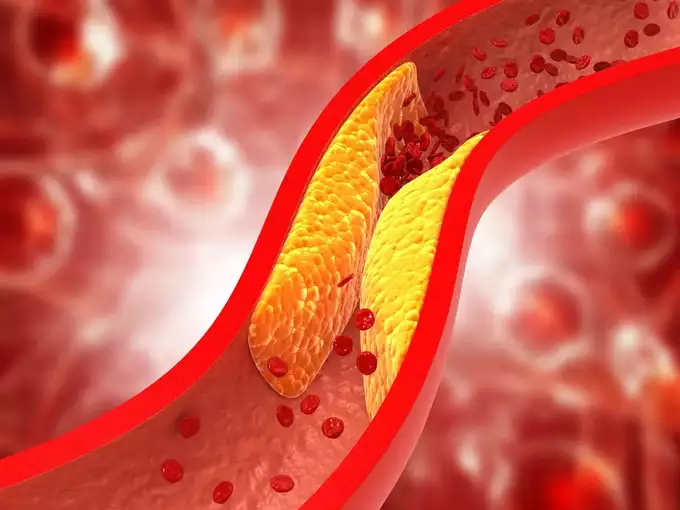Eat heart-healthy foods
A few changes in your diet can reduce cholesterol and improve your heart health:
- Reduce saturated fats. Saturated fats, found primarily in red meat and full-fat dairy products, raise your total cholesterol. Decreasing your consumption of saturated fats can reduce your low-density lipoprotein (LDL) cholesterol — the “bad” cholesterol.
- Eliminate trans fats. Trans fats, sometimes listed on food labels as “partially hydrogenated vegetable oil,” are often used in margarines and store-bought cookies, crackers and cakes. Trans fats raise overall cholesterol levels. The Food and Drug Administration has banned the use of partially hydrogenated vegetable oils by Jan. 1, 2021.
- Eat foods rich in omega-3 fatty acids. Omega-3 fatty acids don’t affect LDL cholesterol. But they have other heart-healthy benefits, including reducing blood pressure. Foods with omega-3 fatty acids include salmon, mackerel, herring, walnuts and flaxseeds.
- Increase soluble fiber. Soluble fiber can reduce the absorption of cholesterol into your bloodstream. Soluble fiber is found in such foods as oatmeal, kidney beans, Brussels sprouts, apples and pears.
- Add whey protein. Whey protein, which is found in dairy products, may account for many of the health benefits attributed to dairy. Studies have shown that whey protein given as a supplement lowers both LDL cholesterol and total cholesterol as well as blood pressure.
Exercise on most days of the week
Moderate physical activity raises the high-density lipoprotein (HDL) cholesterol, the “good” cholesterol, and lowers the LDL cholesterol. Make sure to exercise for 30 minutes, five times a week or vigorous aerobic activity for 20 minutes, at least three times a week. If not that, take a brisk walk for 30 minutes.
Quit smoking
Quitting smoking improves your HDL cholesterol level. The benefits occur quickly:
- Within 20 minutes of quitting, your blood pressure and heart rate recover from the cigarette-induced spike
- Within three months of quitting, your blood circulation and lung function begin to improve
- Within a year of quitting, your risk of heart disease is half that of a smoker
Lose weight
Shedding those extra pounds helps in raising the high cholesterol. Avoid drinking sugary beverages or eating fried/salty foods, and keep track of the calories each day. This will, in turn, reduce cholesterol levels.
Drink alcohol only in moderation
Moderate use of alcohol has been linked with higher levels of HDL cholesterol — but the benefits aren’t strong enough to recommend alcohol for anyone who doesn’t already drink.
If you drink alcohol, do so in moderation. For healthy adults, that means up to one drink a day for women of all ages and men older than age 65, and up to two drinks a day for men age 65 and younger.
Too much alcohol can lead to serious health problems, including high blood pressure, heart failure and strokes.
So go make these changes in your lifestyle and reduce those cholesterol levels.
 HIMALAYA Clear Complexion Whitening Face Wash
1 × 145.00 ₹
HIMALAYA Clear Complexion Whitening Face Wash
1 × 145.00 ₹ Shivalik Herbals Triphala 500mg Capsule
1 × 251.75 ₹
Shivalik Herbals Triphala 500mg Capsule
1 × 251.75 ₹ Unani Super Power Cream by Goodluck Pharma
1 × 132.00 ₹
Unani Super Power Cream by Goodluck Pharma
1 × 132.00 ₹ ORGANIC INDIA Wt-Balance Capsule
1 × 205.80 ₹
ORGANIC INDIA Wt-Balance Capsule
1 × 205.80 ₹ BAIDYANATH Yogaraj Guggulu Pack of 2 Tablet (100)
1 × 309.00 ₹
BAIDYANATH Yogaraj Guggulu Pack of 2 Tablet (100)
1 × 309.00 ₹ Shankhpushpi Syrup
1 × 185.00 ₹
Shankhpushpi Syrup
1 × 185.00 ₹ SRI SRI TATTVA Orange Face Wash Pack of 2
1 × 115.20 ₹
SRI SRI TATTVA Orange Face Wash Pack of 2
1 × 115.20 ₹ KERALA AYURVEDA Laxinol-H Capsule
1 × 362.70 ₹
KERALA AYURVEDA Laxinol-H Capsule
1 × 362.70 ₹ BAIDYANATH Mahabhringraj Tel
1 × 330.00 ₹
BAIDYANATH Mahabhringraj Tel
1 × 330.00 ₹ KERALA AYURVEDA Pilogest Capsule
1 × 502.20 ₹
KERALA AYURVEDA Pilogest Capsule
1 × 502.20 ₹ KERALA AYURVEDA Lohasavam syrup
1 × 102.30 ₹
KERALA AYURVEDA Lohasavam syrup
1 × 102.30 ₹ BAIDYANATH Dimag Poushtik Rasayan Tablet
1 × 164.35 ₹
BAIDYANATH Dimag Poushtik Rasayan Tablet
1 × 164.35 ₹ Vitacost Ginkgo Biloba Extract- 120 mg - 120 Capsules
1 × 1,434.40 ₹
Vitacost Ginkgo Biloba Extract- 120 mg - 120 Capsules
1 × 1,434.40 ₹ ZANDU Vasant Kusumakar Ras
1 × 428.45 ₹
ZANDU Vasant Kusumakar Ras
1 × 428.45 ₹ Add Memory Capsule_Add veda lifecare
1 × 1,140.00 ₹
Add Memory Capsule_Add veda lifecare
1 × 1,140.00 ₹ NOW Foods Magtein- 90 Veg Capsules
1 × 2,097.89 ₹
NOW Foods Magtein- 90 Veg Capsules
1 × 2,097.89 ₹ ZANDU Sona Chandi Chyawanplus
1 × 147.25 ₹
ZANDU Sona Chandi Chyawanplus
1 × 147.25 ₹ ORGANIC INDIA Brahmi Capsule
1 × 171.50 ₹
ORGANIC INDIA Brahmi Capsule
1 × 171.50 ₹ BAIDYANATH Saraswatarishta liquid
1 × 149.15 ₹
BAIDYANATH Saraswatarishta liquid
1 × 149.15 ₹
 HIMALAYA Clear Complexion Whitening Face Wash
HIMALAYA Clear Complexion Whitening Face Wash 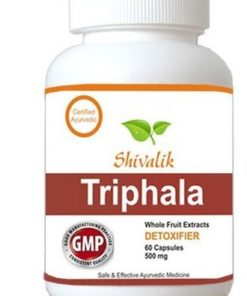 Shivalik Herbals Triphala 500mg Capsule
Shivalik Herbals Triphala 500mg Capsule  Unani Super Power Cream by Goodluck Pharma
Unani Super Power Cream by Goodluck Pharma 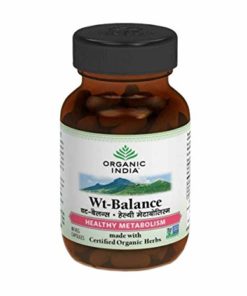 ORGANIC INDIA Wt-Balance Capsule
ORGANIC INDIA Wt-Balance Capsule 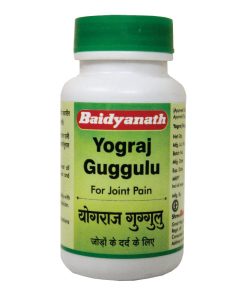 BAIDYANATH Yogaraj Guggulu Pack of 2 Tablet (100)
BAIDYANATH Yogaraj Guggulu Pack of 2 Tablet (100)  Shankhpushpi Syrup
Shankhpushpi Syrup  SRI SRI TATTVA Orange Face Wash Pack of 2
SRI SRI TATTVA Orange Face Wash Pack of 2 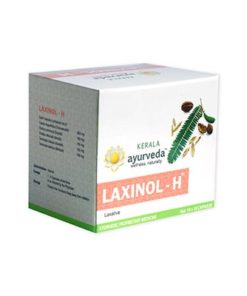 KERALA AYURVEDA Laxinol-H Capsule
KERALA AYURVEDA Laxinol-H Capsule  BAIDYANATH Mahabhringraj Tel
BAIDYANATH Mahabhringraj Tel 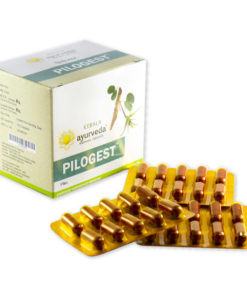 KERALA AYURVEDA Pilogest Capsule
KERALA AYURVEDA Pilogest Capsule  KERALA AYURVEDA Lohasavam syrup
KERALA AYURVEDA Lohasavam syrup 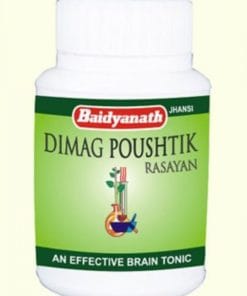 BAIDYANATH Dimag Poushtik Rasayan Tablet
BAIDYANATH Dimag Poushtik Rasayan Tablet 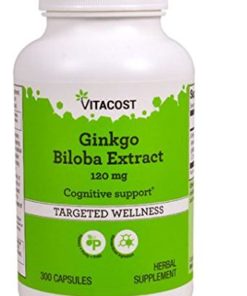 Vitacost Ginkgo Biloba Extract- 120 mg - 120 Capsules
Vitacost Ginkgo Biloba Extract- 120 mg - 120 Capsules 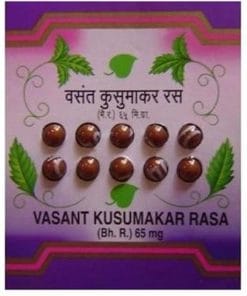 ZANDU Vasant Kusumakar Ras
ZANDU Vasant Kusumakar Ras  Add Memory Capsule_Add veda lifecare
Add Memory Capsule_Add veda lifecare 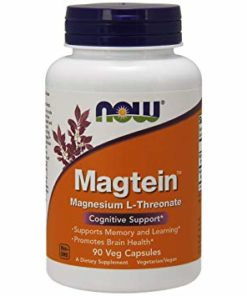 NOW Foods Magtein- 90 Veg Capsules
NOW Foods Magtein- 90 Veg Capsules  ZANDU Sona Chandi Chyawanplus
ZANDU Sona Chandi Chyawanplus 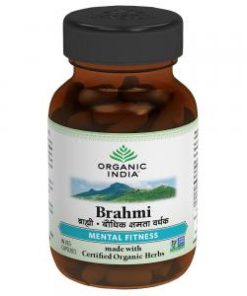 ORGANIC INDIA Brahmi Capsule
ORGANIC INDIA Brahmi Capsule  BAIDYANATH Saraswatarishta liquid
BAIDYANATH Saraswatarishta liquid 